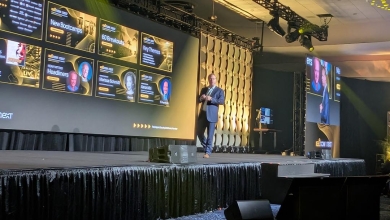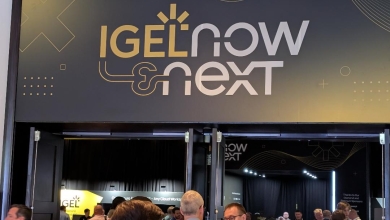
At this week’s IGEL Now & Next customer and partner conference in Miami, Florida, board member Mark Templeton (pictured) set out how the channel could make it easier to protect their customers’ data.
The ex-long time CEO of Citrix, and a serial board member of a number of key technology industry companies, Templeton is in a position of authority when it comes to how to deal with industry trends.
Templeton holds board positions at companies central to managing and securing network data from the cloud and the data centre to the edge and the enterprise, being involved with Nutanix, Arista Networks, cybersecurity firm Proofpoint, web file system for object storage LucidLink, Reltio – “unifying data for trusted AI” – and end user computing (EUC) pioneer IGEL.
“In my opinion, with the way the industry is changing in response to customer demands, EUC should really stand for ‘enterprise utility computing’, with many not really knowing what ‘end user computing’ really means anyway.”
For IGEL, it was probably simpler when it was mainly known as the “thin-client company”, the company that sold hardware endpoints bundled with its software, that allowed users to access their apps from a server or the cloud, to avoid having to store all those apps and files on a personal device, that had to be individually updated and protected on a regular basis.
IGEL pulled out of the hardware business in 2022, and leaves the likes of LG, HP and Lenovo to manufacture thin-client hardware, while it concentrates on developing its IGEL OS and data protection services for end users.
So what about Templeton’s enterprise utility computing replacement idea? He was certainly enthusiastic about it, after flying in on a red eye from a California board meeting, and driving straight to the conference to deliver his thoughts in a keynote.
“EUC should be a workforce experience delivered as-a-service in a browser-first enterprise. 75% of enterprise work happens in browsers, while 80% of security incidents happen in web applications.
“The browser is now the new killer app, and also the new shadow IT platform. But while browsers consume 90% of enterprise network traffic, they get the least proactive security controls. Today, the existing security stack doesn’t see most browser-based attacks.”
So, as increasingly mobile users continue to rely on their browsers to get them where they need to be on the network, what’s the solution to the increasing threats?
“We need unified browser security, including various elements,” said Templeton. These include zero trust security and safe browsing, SaaS and web content filtering, and DLP (data loss prevention) and generative AI prompt policy – anonymising sensitive data automatically, for instance.
Unified browser security also needs extension management, centralised browser configuration policy, and end-to-end visibility and access control, he added.
The conference previously heard that IGEL is continuing to extend its ecosystem of technology alliance partners, to offer channel partners and their end customers improved cybersecurity packages, and improved browser security is obviously on the roadmap.
“John Gage at Sun Microsystems [Sun’s 21st employee] said the ‘network is the computer’ back in 1984, and the Sun guys were always ahead of everyone else. But I say the browser is the computer now.”


